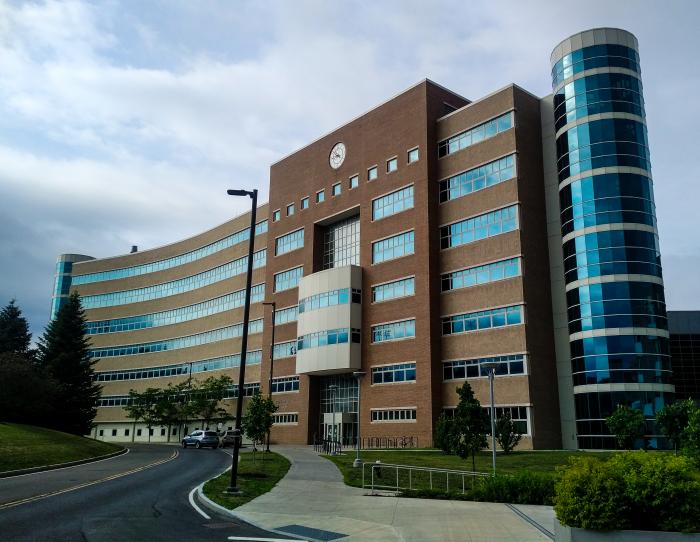
ORIE Research in the News
Cornell Operations Research emphasizes both methodological and applied research.
Our creativity translates theory into practical applications, from optimizing where and when to place ambulances for fast response times to assessing pathogen risk in natural water supplies. The COVID-19 pandemic has helped shine a spotlight on the immediate applicability of some of what we do here in Rhodes Hall. The stories collected below are just a taste of the many ways the fields of operations research and information engineering are making news and making the world a better place.
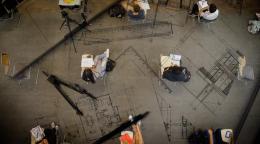
The unsung engineering behind Cornell’s fall 2020 schedule
By Syl Kacapyr
As the coronavirus pandemic surged in the spring of 2020, Cornell University leaders faced a critical question as they contemplated an in-person fall semester: Would it even be possible?
It was a question that universities across the nation were grappling with as they tried to imagine what a safe, residential semester would require. Not only would Cornell need to establish a virus-testing protocol, but adhering to health guidelines meant students would have to sit at least 6 feet apart, drastically reducing the university’s classroom space. Exactly how much classroom space did Cornell have to work with, and could it accommodate any kind of course schedule?
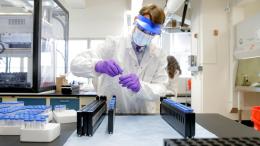
Spring tweaks to COVID-19 plan are based on fall’s lessons
By Krishna Ramanujan
While many factors have led to Cornell’s success to date in managing the spread of COVID-19 on campus, one unsung aspect has been the university’s commitment to analyze and learn, to pivot and adapt. Senior-level committees – working in close collaboration with the Tompkins County Health Department and Cayuga Medical Center – have met steadily throughout the pandemic to assess Cornell’s COVID-19 plan, and have suggested improvements that have shaped Cornell’s processes. The university will continue to evaluate and modify its approach as needed with agility through the spring semester.

CBC reports from Cornell on the University's COVID response
ORIE's Peter Frazier was featured in the Canadian Broadcasting Corporation report on Cornell's COVID response and successful testing program. University Provost Michael Kotlikoff also weighs in on how the semester has gone and the how the students have risen to the challenge of keeping each other and the larger Ithaca community safe.

Data, testing helped Cornell curb COVID-19
By Melanie Lefkowitz
During late spring and early summer, as Cornell administrators pondered whether and how the university should reopen for a residential fall semester, the logistics were daunting and disheartening.
“It was pretty clear that the conditions were likely to be very similar in the fall – that is, the virus would still be present, we would have a population that was susceptible to infection by the virus, and absent putting in place clear mitigation risks, we would be in trouble,” said Provost Michael Kotlikoff, speaking as part of the Nov. 9 eCornell panel, "Cornell's COVID Response: Data Science in Action." “It was unlikely that we would have what I would [call] a perfect option.”
Read the full "Data, testing helped Cornell curb COVID-19" article here.
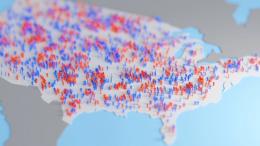
‘Fairmandering’ draws fair districts using data science
by Melanie Lefkowitz
It’s almost impossible for humans to draw unbiased maps, even when they’re trying.
A new mathematical method developed by Cornell researchers can inject fairness into the fraught process of political redistricting – and proves that it takes more than good intent to create a fair and representative district.
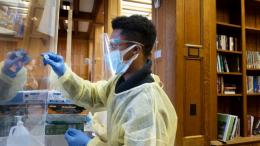
Cornell teams work tirelessly to limit COVID spread
By Krishna Ramanujan
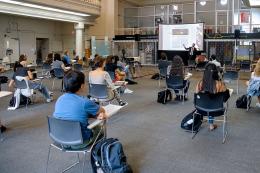
From Bloomberg: Cornell Chalks Up Rare Covid-19 Containment Victory
By Emma Court
When Cornell University reopened its sprawling Ithaca, New York campus to a population of about 24,000 people in late August, more than a few students, parents, faculty and local residents saw a disaster in the making.
After all, no other Ivy League school was attempting to bring back its entire student body all at once.
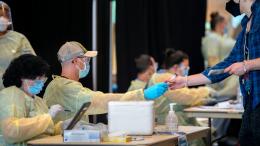
Cornell launches COVID-19 testing dashboard, alert system
By Merry R. Buckley
A coordinated COVID-19 testing program is a vital component of Cornell’s efforts to prevent the spread of the virus as Cornell reactivates its Ithaca campus. The university is now making testing results available on a new dashboard.
The COVID-19 Tracking Dashboard, unveiled Aug. 25, will be updated daily with information on the number of tests performed and the number of positive cases identified in the campus community. University leadership outlined Cornell’s public health strategy, including an aggressive testing plan, during a virtual faculty and staff town hall Aug. 20.

‘Adaptive testing’ quickly IDs infections within social circles
By Melanie Lefkowitz
To proactively identify cases across campus and slow the spread of COVID-19, Cornell is testing everyone in the social circles of people infected with the virus, in addition to those who meet the definition of close contacts.
The aggressive approach, known as adaptive testing, has already identified cases in a recently discovered cluster that would have otherwise gone undetected.
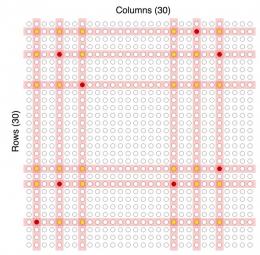
Group testing could screen entire US, research suggests
By Melanie Lefkowitz
A group testing approach proposed by a Cornell researcher, in which samples of COVID-19 tests are pooled and analyzed collectively, could potentially curtail the virus’s spread through weekly testing of every household in the U.S., a simulation showed.
Assuming that 1% of Americans have the virus, the simulation found that weekly group testing could allow more than 90% of the country to safely return to daily life after a four-week period, said Peter Frazier, associate professor in the School of Operations Research and Information Engineering.
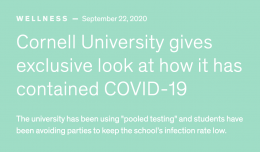
Good Morning America highlight's Cornell's COVID-19 containment plan
By mid-September it was clear that Cornell's COVID-19 containment plan was doing a good job of limiting the spread of COVID-19 on campus. The segment GMA aired on September 22, 2020 discusses details of the plan and its implementation.


